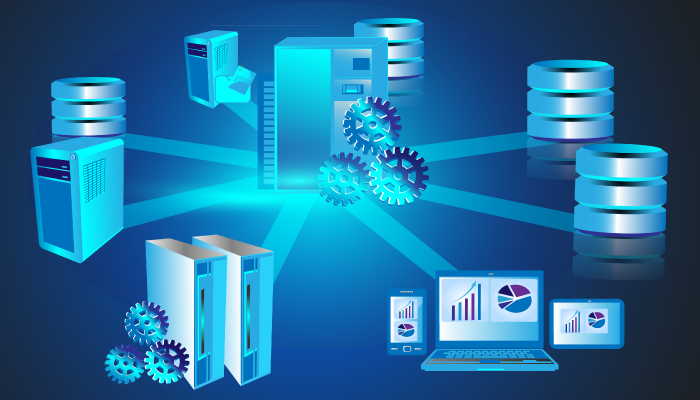
How AI is Enhancing Data Engineering Pipelines
Data engineering is essential in today’s businesses, where it is ensured that data is captured, processed, and placed at the disposal of analytical and operational requirements. As the volume, velocity, and variety of data increase, conventional data engineering solutions have a number of challenges to face, such as scalability, performance tuning, and data quality. Artificial Intelligence (AI) is revolutionizing data engineering pipelines with automated redundant work, better data quality, and real-time analytics.
- AI-Based Data Ingestion and Integration
AI tools can be used to automate data ingestion from various sources, such as databases, APIs, and streaming sources. Machine Learning (ML) algorithms assist in pattern detection, anomaly detection, and auto-mapping fields from different data sources. This minimizes human intervention and enhances data consistency across multiple systems.
Tools: Apache NiFi, Google Cloud Dataflow, Talend, Informatica
- Data Cleaning and Preparation Automation
Data cleaning and preprocessing is one of the most time-consuming processes in data engineering. AI-based tools can identify missing values automatically, detect duplicates, and handle inconsistency in datasets. Natural Language Processing (NLP) techniques standardize unstructured data, like logs and text, and make them more analysis-friendly.
Tools: Trifacta, Databricks, OpenRefine, DataRobot
- Intelligent Data Transformation
Data transformation is critical to making raw data functional for analytics and machine learning applications. AI-based solutions can suggest best-practice transformation methods, wrangle data automatically, and create reusable transformation pipelines. This speeds up the ETL process and provides high-quality data for business intelligence initiatives.
Tools: dbt (Data Build Tool), Apache Spark, Alteryx, Matillion
- Data Quality and Governance Improvement
AI can also ensure data quality and governance through monitoring of adherence to data integrity regulations. AI-powered algorithms can identify inconsistencies, validate data against standards defined beforehand, and indicate possible problems before they impact downstream usage. AI-powered metadata management tools can also tag and categorize datasets automatically, enhancing data discoverability and usability.
Tools:Collibra, Informatica Axon, Talend Data Catalog, Atlan
- Enhanced Query Performance and Storage
AI improves database performance through query execution optimization and storage allocation. ML algorithms can examine query patterns, suggest indexing strategies, and dynamically modify caching mechanisms to optimize query response times. AI-based data compression methods can also assist in lowering storage costs without compromising performance efficiency.
Tools: Snowflake, Google BigQuery, AWS Redshift, Apache Cassandra
- Real-time Data Processing and Predictive Analytics
AI-based real-time data processing platforms facilitate faster decision-making with the analysis of streaming data. With predictive analytics based on AI, companies are able to make predictions about trends, identify outliers, and develop insights in real time. The feature is essential in sectors including finance, medicine, and information security, which demand instant decision-making based on data-driven input.
Tools: Apache Flink, Kafka Streams, Azure Stream Analytics, H2O.ai
- AI in Workflow Automation and Monitoring
Automation software powered by AI can coordinate end-to-end data pipelines, guaranteeing seamless ETL job execution and pipeline health. AI-based monitoring solutions continuously monitor pipeline health, identify failures, and recommend remedial steps, minimizing downtime and increasing reliability.
Tools: Apache Airflow, Prefect, Dagster, IBM Watson AIOps
Conclusion
AI is transforming data engineering by enhancing efficiency, scalability, and data quality. From machine learning-based data ingestion to real-time processing and predictive analytics, AI-powered advancements enable organizations to optimize their data pipelines, minimize operational expenses, and make data-driven decisions more efficiently. As AI keeps on advancing, its integration with data engineering pipelines will continue to empower businesses to leverage the full potential of their data assets.

